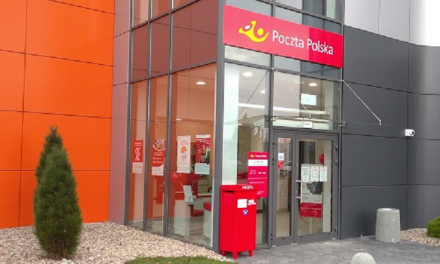
Future worlds: creating a catalyst for true innovation
Do we think enough about the future?
As we consider the future of mail services, many questions are raised. Will mail survive in today’s multi-channel communications world? Will new entrants ever hold a dominant market position? Is product and service innovation possible? However, we tend to answer these questions in the context of our current world and as a result limit industry innovation. If we are to protect the future of this industry we must deliver true transformational change. This requires us to answer these and other relevant questions, in the context of future worlds; worlds that we are active in either creating or preventing.
Rather than think of the future as something that happens or something to which we respond, we can think of it as something that we create and build. Considering the future world from the perspective of those who receive post reveals over 100 influencing factors; factors that could mean the difference between success and failure for all those in the mail industry. If we create scenarios around these factors we can decide which would be good and which would be bad for our business, and take action as a result.
Do mail services remain a key part of the social infrastructure?
Imagine a world where government decided that the communication right of the citizen could be fulfilled through telecommunications channels. Universal communications access would be provided through a telecommunications network; hence the need for a universal postal service would be removed. The ripple effect could be significant. The Government and Industry Regulators could no longer insist on mail being the channel for ‘formal’ customer communications – banks could email their customers with notifications of interest rate changes. The whole legal acceptability and status of the ‘non-mail’ channels could change.
In this world, mail and mail services would look very different. Mail would have to compete with other communications channels in its own right and find its own competitive differentiator. The question is what would this differentiator be? In cost, delivery speed, integration and flexibility mail currently falls well behind other communication channels. Would the industry be able to transform the services offered to compete in these areas or would we find mail occupying a niche space? The alternative scenario would see complete devastation of the letter market as the industry would become focused on delivering those items that could not be sent electronically. In a market that is already very competitive postal operators would be competing head on with the parcels and home delivery companies with low margins and a need for a totally different infrastructure.
Perhaps this world will not happen – but if it does the universal service providers would find themselves in a very difficult situation. Investment in mail sorting equipment and address interpretation technology would be wasted and the need for postmen and women walking every street every day would be gone. The implications are enormous and as an industry can we really say that we are doing all we can to prevent this future world becoming our reality?
The customer is king – but who is the customer?
In our world today senders decide what to send, when to send it and ultimately they pay the bill. Receivers are passive in our marketplace – they react and respond.
Let us imagine a world where the receiver is king. It is likely that delivery flexibility would be much greater, that there would be more choice about when and where items were delivered and possibly, even for letters, in what format they were delivered. Enhanced collection options could be offered, giving receivers more choice about how they accessed their items. The relevance of the delivery aspects of the universal service definition would be questioned. Mail preference services would be at the core of the service: the spam filter for the letter box would be a reality. The question we must consider in this world is if receivers had choice, what would mail look like today?
This industry invests a lot of time and money understanding and meeting the needs of the senders of mail. Millions of pounds are spent researching the market, advertising new products and services, building brand reputation and hopefully customer loyalty. But how much is spent on the receiver side of the market? Very little. How much do we know about the receivers of mail and what they value? Not enough. As a consequence how much of the mail that they receive do they want? We do not really know. The reality is if the receiver became king in our industry, and decided to exercise his/her power, we would be ill prepared. How would we segment the receiver market? Are socio-demographics relevant or should we be focusing on a techno-friendly to techno-phobic scale?
In a world where consumer power is increasing every day and people are using the internet as a low cost channel to access the consumer market, the prospect of a receiver world that is consumer based is not that hard to believe. If we anticipate and control a market shift in this direction, we could create a whole new revenue stream. If we do not, we may wake up and find mail is obsolete.
Building future worlds – and making it happen
Developing these future worlds uncovers the dream and nightmare scenarios for each of us: the world that allows us to establish market leadership and the world that hands it to our competitors. Within this industry we have many different players – the universal service providers, the new entrant, the niche players, the regulators, the consumer bodies, governments, the technology suppliers, and the consultants. We all have different desires and aims and would all like a future that gives us that competitive edge. So let us think about the future world, understand its possibility, and most of all innovate to create it.













